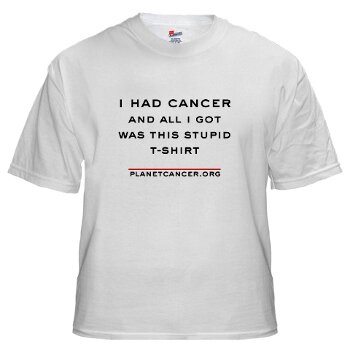What to say about cancer: a reader participation post
 I don't have a problem telling people I have cancer. The problem is... how do you tell someone?
I don't have a problem telling people I have cancer. The problem is... how do you tell someone?
I know there are many people who would say, "It's no one's business but your own; you don't have to tell anyone you have cancer."
I understand that point of view, but I gotta say, it is hard to not talk about it when it is part of your every day life.
The situation may be different if I was finished with treatment. I could just say, "I'm a cancer survivor. X years ago I had brain surgery, was on chemo, and now I am all done. Yeah!" Everyone would feel comfortable and happy that I am a winner.
Conversely, the situation would be different if it were more obvious that I am a cancer patient. If I was missing hair, eyebrows, and wore scarves on my head I would look a bit more "cancer-y".
But I have a weird situation (that I am not complaining about) where I am a cancer patient, I am in treatment (and will be for at least another year), but I look perfectly normal and I go to work everyday.
So what's the weird part?
For one thing, I have an incurable disease that's just... I don't know? ... Freakin' crazy! I am not like everyone else. I know everyone has issues to deal with, but man, sometimes I feel like I deserve extra points.
So I have brain cancer and I've been on chemo for a year, but what do I have to show for it? No one can tell I have cancer. Put me next to a woman in a head scarf with a pink ribbon, and no one is going to think I'm equally strong and survivor-y.
Here's my question to all my friends with brain cancer (or any type of cancer):
- If you are in treatment, can people tell you have cancer? Do you feel the need to explain yourself?
- How much do you share about your treatment with friends and co-workers?
- If you are out of treatment, can people tell you are a brain cancer survivor? Do you have any lasting side effects? Do you have any cognitive difficulties?
